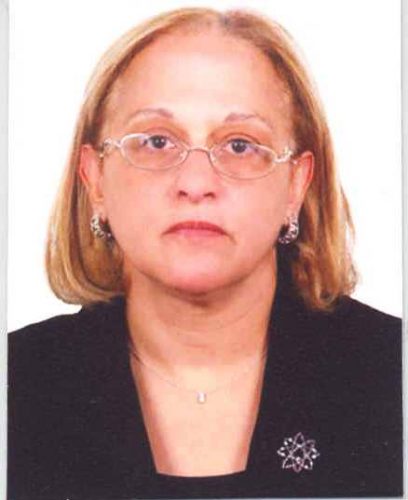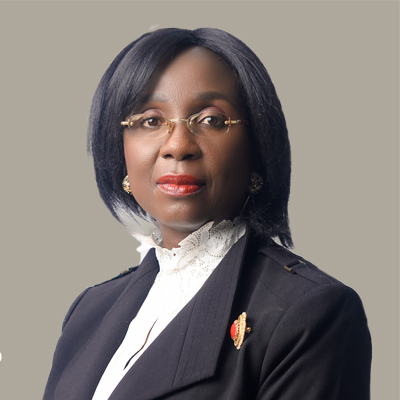Name of arbitrator:
Njeri Kariuki
Education, publications:
Education:
After a two-year stint at the University of Nairobi, Njeri went on to study Law at Queen’s University, Kingston, Ontario, after completing her BA at York University, Toronto. Njeri also holds a Diploma in International Arbitration (CIArbn., Keble College, Oxford (2007))
Publications:
- Written and presented a paper on International Commercial Arbitration, during the 10th Joint Annual Seminar of the London Branch of the Chartered Institute of Arbitrators & the LCIA held in September,
- Written and presented a paper on Commercial Mediation in Africa, during the Centenary Conference of the Chartered Institute of Arbitrators held in July 2015 in Livingstone,
- Written & presented a paper on “The Effective Skills required for building an Arbitration Practice in Africa: a Woman’s Perspective” during the Joint IBA/ICC Conference held in Nairobi, Kenya, on 5th June,
- Written & presented a paper on “Who is to blame? Exploring the Role of Party Conduct in escalating the Costs in arbitration proceedings” during the NCIA Conference held in Nairobi on the 5th & 6th days of June.
Contributed the Kenya Chapter in the:
- 2014 Chambers Legal Practice Guide on Litigation
- International Arbitration in the 2016 Chambers Country Practice Guides
- Global Legal Group’s International Comparative Legal 2016, 2017 & 2018 Guides
- Practical Law – Arbitration Global Guide 2016 & 2017
- Lexology Navigator Arbitration 2016 & 2017
- Global Legal Group’s Investor State Arbitration 2019 Guide
Countries qualified to practice:
- Worldwide as a Mediator & Arbitrator
- Republic of Kenya
Language(s):
- English
- Gikuyu
- Kiswahili
- A smattering of French!
Name of institution:
Njeri Kariuki Advocate
Institutional affiliation(s):
- Member of the Law Society of Kenya,
- East Africa Law Society,
- FIDA,
- Fellow of the Institute of Certified Public Secretaries of Kenya,
- Fellow of the Chartered Institute of Arbitrators,
- Member, LCIA African Users Council,
- Member, Dispute Resolution Board Foundation, ICCA.
Please provide a brief background of yourself and your experience working on disputes in Africa?
Njeri is an advocate who specialises in resolving disputes through arbitration and ADR. During the course of her career, she has delivered awards as a sole arbitrator spanning the petroleum, insurance, banking, industry & corporate sectors, mainly in the domestic arena. Njeri has also sat on several three panel tribunals, as co-arbitrator, determining disputes in similar sectors. Besides being an arbitrator, Njeri is also an accredited mediator and is listed as a trainer & a tutor of several courses with the AFL of the Chartered Institute of Arbitrators. In addition, Njeri sat as Chair of a Dispute Adjudication Board set-up to midwife an international geothermal project to fruition for a period of three years. In her primary profession as an advocate, Njeri takes on, in the main, non-contentious matters in the realm of real estate (conveyancing) law, probate & succession, commercial contracts, company/business formations & company secretarial matters.
WORK HIGHLIGHTS
- Nomination by the Government of the Republic of Kenya to the Panel of Arbitrators at ICSID
- Attaining Chartered Arbitrator status in 2008, just to find that there are very female Chartered Arbitrators the world over
- 2014 – 2020 Citations in Chambers’ Global as a Leading Individual
- 2015 & 2016 Citations in Expert Guides as one of the World’s leading practitioners in Commercial Arbitration
- 2017 Arbitration Award in Kenya from International Advisory Experts
- Corporate INTL Global Award – Commercial Arbitration Law Firm in Kenya (2017)
- Appointment to the ICC/ICA as the Member representing the Republic of Kenya (2018)
- Invited to be a Member of SIAC’s African User’s Council in 2016
- In 2020, invited to be a Member of LCA’s Arbitration Committee
- Invited in 2021 to be a Member of LACIAC Court of Arbitration
What do you consider as the biggest challenge facing practitioners working on disputes in Africa? How do you think this challenge can be tackled?
- Lack of visibility, even within our own jurisdictions, and a failure on the part of arbitral institutions with roots in Western democracies to spotlight our very best, although this could well be changing
- Call upon African institutions to focus on bringing visibility to their members’ achievements and to spotlight, as you are, those practitioners who are regarded as up & coming as well as those who are at the top of their game
- Home-grown African Institutions ought to extol the virtues of their members to the AU as well as African Governments, many of whom have a tendency to look to the West when there is need to procure the services of both counsel and arbitrators for one reference or another.
What do you consider as the biggest challenge facing practitioners working on disputes in Africa? How do you think this challenge can be tackled?
- Lack of visibility, even within our own jurisdictions, and a failure on the part of arbitral institutions with roots in Western democracies to spotlight our very best, although this could well be changing
- Call upon African institutions to focus on bringing visibility to their members’ achievements and to spotlight, as you are, those practitioners who are regarded as up & coming as well as those who are at the top of their game
- Home-grown African Institutions ought to extol the virtues of their members to the AU as well as African Governments, many of whom have a tendency to look to the West when there is need to procure the services of both counsel and arbitrators for one reference or another.
As a member of the ICC-International Court of Arbitration, representing Kenya, how is international arbitration developing in the country and how has COVID-19 impacted or shaped the conduct of arbitral proceedings?
- The arbitration industry in Kenya has been quite vibrant in Kenya for the last 30 years or so. For example, the Kenya Branch of the Chartered Institute of Arbitrators opened its doors in 1982 and since then has grown from strength to strength, supporting the opening of branches in several countries around the Continent while providing training in Arbitration and then Mediation so growing the number of practitioners in leaps and bounds.
- With the 2010 Constitution championing the application of Arbitration & Mediation (amongst others) within the Judiciary, the interest in specifically these 2 alternatives has been spurred all over the country in the last 10-12 years and it can safely be said that ADR & Arbitration have come into their own in Kenya. Conciliation, Dispute Boards, Negotiation and other forms of ADR are not far behind.
- The confidential nature of Arbitration makes it difficult to substantively point out the level of uptake of both international and domestic arbitration but on a domestic level, one could look to the statistics of the Kenya Branch of the CIArb on the number of appointments made in the last several years as an indicator and in respect of international arbitration, the several references that the Kenya Government has had to defend or instituted in the last decade or so.
- With the Kenyan Judiciary going digital due to the Covid-19 Pandemic and holding virtual trial conferences and hearings, so has arbitration. This may well be the wave of the future as it saves time and costs, essential factors within the arbitration process.
As a tutor and trainer with CIArb, what in your opinion is the key element for becoming a successful international arbitration practitioner?
- Get to know your area of focus by investing in yourself through training. Many of us continue to scratch the surface – the depth of arbitration takes my breath away.
- Once trained, become a trainer yourself as this helps to embed all in one’s brain cells.
- Keep in mind that education never stops – one’s eyes and ears must remain peeled for further and better information so as to hone one’s skills.
- One cannot emphasise enough how very important integrity is and how imperative it is to remain steeped in it throughout one’s career. Many currently believe that integrity is optional!
With more African states acceding to the New York Convention, what are your thoughts on the enforcement trends in Kenya? What is the current disposition of Kenyan courts to enforcement of foreign arbitral awards?
Very positive, I would say. I think that the Courts are finally “getting it” that arbitration is a partner and not a competitor in the administration and access to justice; that upholding arbitral awards, where merited, means less on “their plate”, so to speak and it is anticipated that the trend will continue.
What advice do you have for young practitioners who are interested in developing a career in arbitration?
- Invest in yourself through training to the highest level possible.
- Become a tutor & trainer yourself as this opens up many opportunities, even outside one’s main focus area.
- Attend conferences wherever situate and within the reaches of one’s pocket and thereby become visible through networking.
- Maintain your integrity from the outset and thereby build your reputation which takes years to do but can be torn down in a day!





